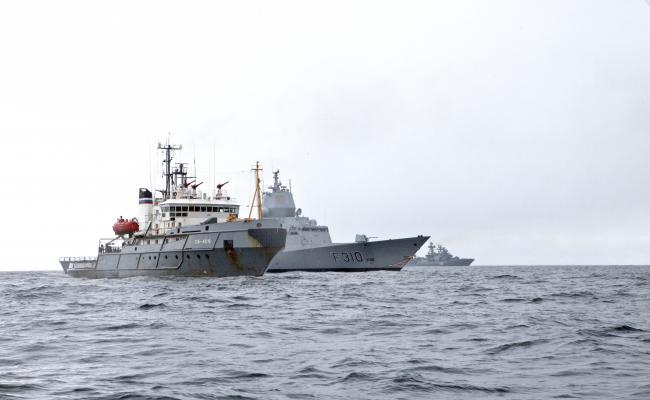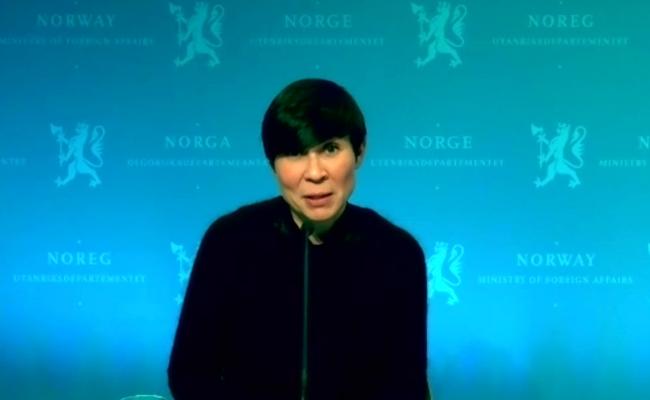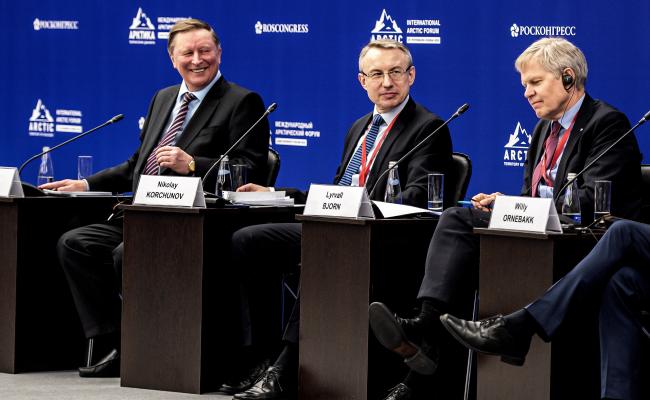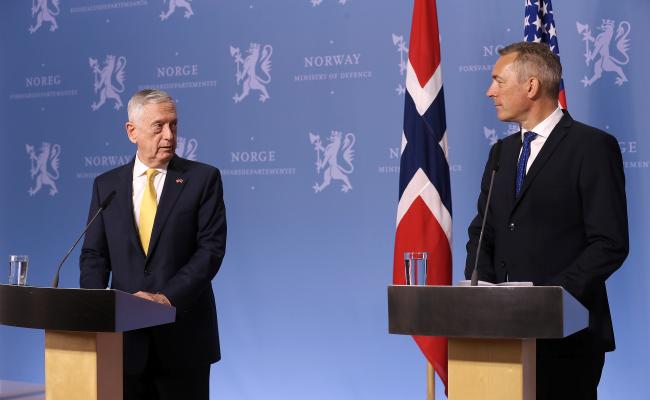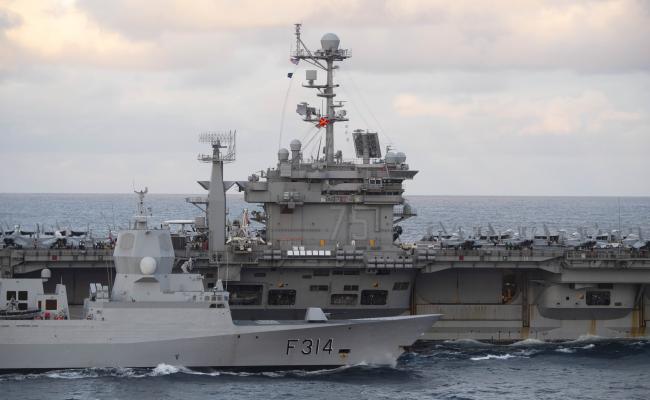Norwegian Defense Chief Eirik Kristoffersen: “Dialogue May Lead to Solutions”
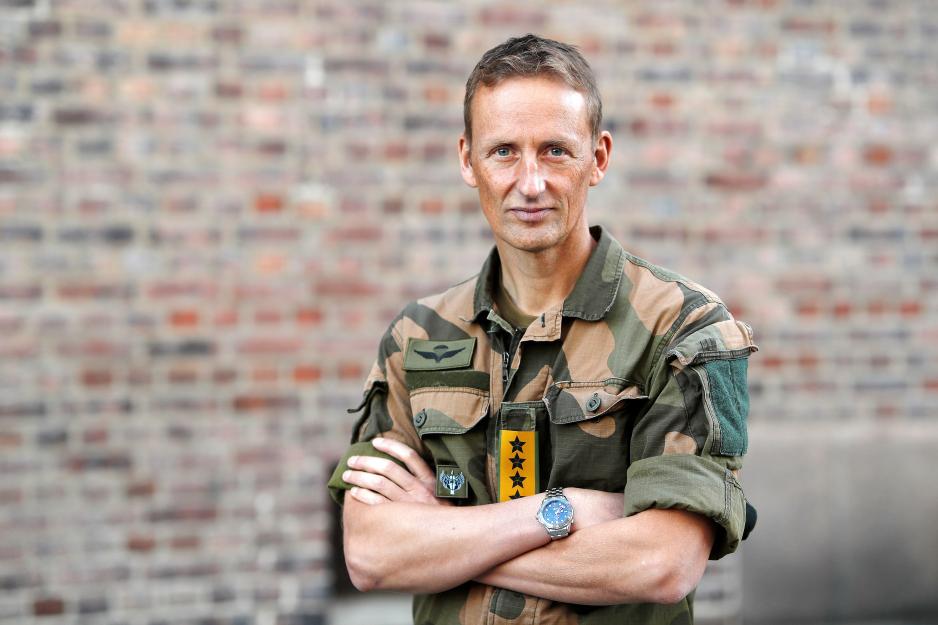
General Eirik Johan Kristoffersen was appointed Norwegian Chief of Defense in 2020. He has previously been Chief of the Army from 2019, and Chief of the Home Guard since 2017. Kristoffersen has a.o. served as special force soldier in Afghanistan and also served in the Northern Brigade. (Photo: Torbjørn Kjosvold/Forsvaret).
“The government manages defense and security politics in Norway. Based on what political solutions it arrives at, I am ready to participate in the dialogues that prove possible to arrange”, says Norwegian Chief of Defense Eirik Kristoffersen regarding a potential resuming of meetings between the top Arctic military leaders.
Norwegian Chief of Defense Eirik Kristoffersen stresses that for meetings between the Arctic defense chiefs to be resumed, a political clarification would be needed.
In a conversation with moderator Siri Lill Mannes at the Kirkenes Conference this week, Kristoffersen talked about the challenges Norway faces in the High North, with rearmament and increased great power presence.
“I hope we manage to restore a dialogue in the world in which we can talk about the big solutions to issues. What we see in Afghanistan, the Middle East, Sahel in Africa and in our neighborhood requires dialogue to find solutions. How to arrive at that dialogue is a more political question and we will have to see how the Biden administration and our own politicians are to solve that.”
The Norwegian defense chief says the big question for him in the time ahead will be about how much Russia will continue exercising and asserting its sovereignty – and what the allied response will be.
“And also how Norway will balance in the ongoing great power rivalry, in which the USA, Russia and China are asserting their positions.”
Deployment of weapon systems
Kristoffersen says that Norway, given its location so close to Russia, plays an important role within the NATO alliance.
“Norway’s knowledge on Russia is valued. The fact that we have a clear policy for where to exercise and not is understood. Of course, a small nation cannot always pull above its weight, though on a general basis it is my experience that Norway is well respected within the alliance.”
“The government has to decide whether or not we should participate in the most sensitive areas, and I notice that whenever we join, the Brits, Americans and other allies listen to our advice, and we create a larger understanding of where to sail and where not to sail”, he adds.
When asked what the Russian weapon systems deployed close to the Norwegian border mean for Norway, the defense chief responds that Norway is close to one of the biggest threats towards the USA; namely the Russian nuclear arms on the Kola Peninsula.
“The core is that Russia has deployed its perhaps most important tool for becoming a superpower, its strategic capacities, only a few kilometers away from the Norwegian border. It is Norway’s strategic location that makes us so interesting.”
“For one, that makes us have to demonstrate a clear presence, otherwise someone else will fill that vacuum. Secondly, we have to be a clear voice amongst the allies in how to balance this. Nobody wants a conflict with a power as strong as Russia. Though crisis and conflicts often arise based on misunderstandings, fears, or by someone’s interests being threatened. It is then important to balance this out so that we do not cause fear, can avoid misunderstandings and do not challenge vital interests.”
How to arrive at that dialogue is more of a political question.
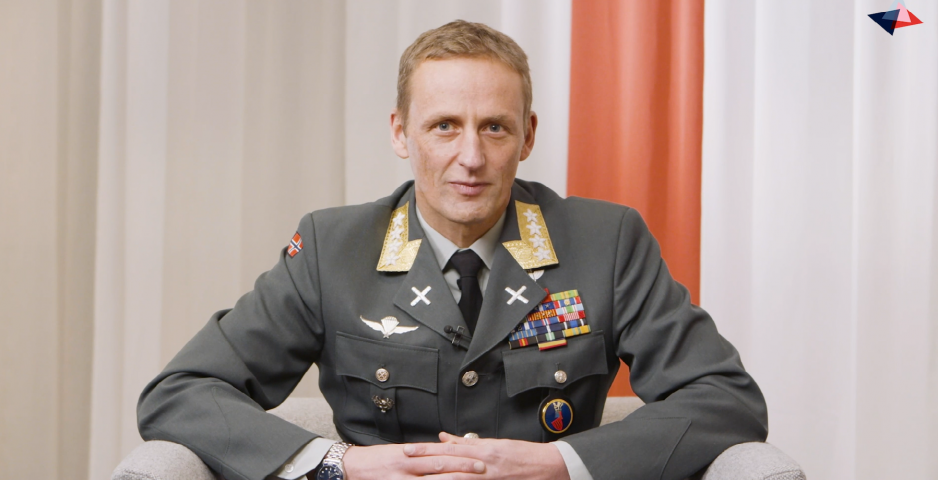
“It is a challenging security picture”, Kristoffersen says. In the conversation with Mannes, he stressed that both Russia and China have become more self-assertive. In recent years, the two countries have a.o. built up their respective capacities in both the military as well as in the intelligence services. (Photo: Screen shot from the Kirkenes Conference)
Meetings between Arctic defense chiefs
Like previously covered by High North News, it has been argued that the security policy dialogue in the Arctic should be strengthened. Because while the security policy situation keeps evolving, there has been less dialogue in the military area between Russia and other Arctic states in recent years.
A series of researchers at the U.S. Naval War College argue that meetings with Russia under the umbrella of the Arctic Chiefs of Defense Forum should be resumed. The meetings were suspended following the Russian annexation of the Crimea in 2014, they write.
In a report, the researchers write that the forum could be a mechanism used by Arctic states to resume dialogue in the strategic military area, increase transparency, and build trust to alleviate security challenges stemming from misunderstandings. Former Norwegian Chief of Navy Lars Saunes says to High North News that security dynamics as well as the limited security dialogue with Russia in the Arctic matters a great deal for Norway as a coast state in the region.
When asked by Mannes what Kristoffersen thinks about this specific proposal, he says it first would take a political clarification. At the same time, he stressed that dialogue is crucial:
“The government manages defense and security politics in Norway. Based on what political solutions it arrives at, I am ready to participate in the dialogues that prove possible to arrange. I believe dialogue is crucial. We saw that we had dialogue during the Cold War. But dialogue does not always lead to results. We must be prepared to have a strong defense ready at all times. But dialogue is what may bring solutions”, Kristoffersen responds.
Also read
Co-operation continues
Kristoffersen adds that there is still cooperation between Norway and Russia in some military areas.
“We cooperate in search and rescue, and there is a direct line between the Joint Operational Headquarters (FOH) and the Northern Fleet.”
What works best in this cooperation? Mannes asks.
“Militarily, it works well in many areas. We see that Norwegian planes are respected by the Russian planes when they fly out. We see our intelligence vessels are respected. The Coast Guard cooperates well if and when necessary. We have managed to govern our resources on the civilian side very well in the North. And the direct line between the FOH and the Northern Fleet can be used if necessary.”
“When we have seen a somewhat unprofessional behavior, we have used that line. If a Russian plane has come too close to a Norwegian one, that would often be a plane stationed elsewhere, other than on the Kola Peninsula, and just coming there to practice”, he adds.
Also read
This article was originally published in Norwegian and has been translated by HNN's Elisabeth Bergquist.


